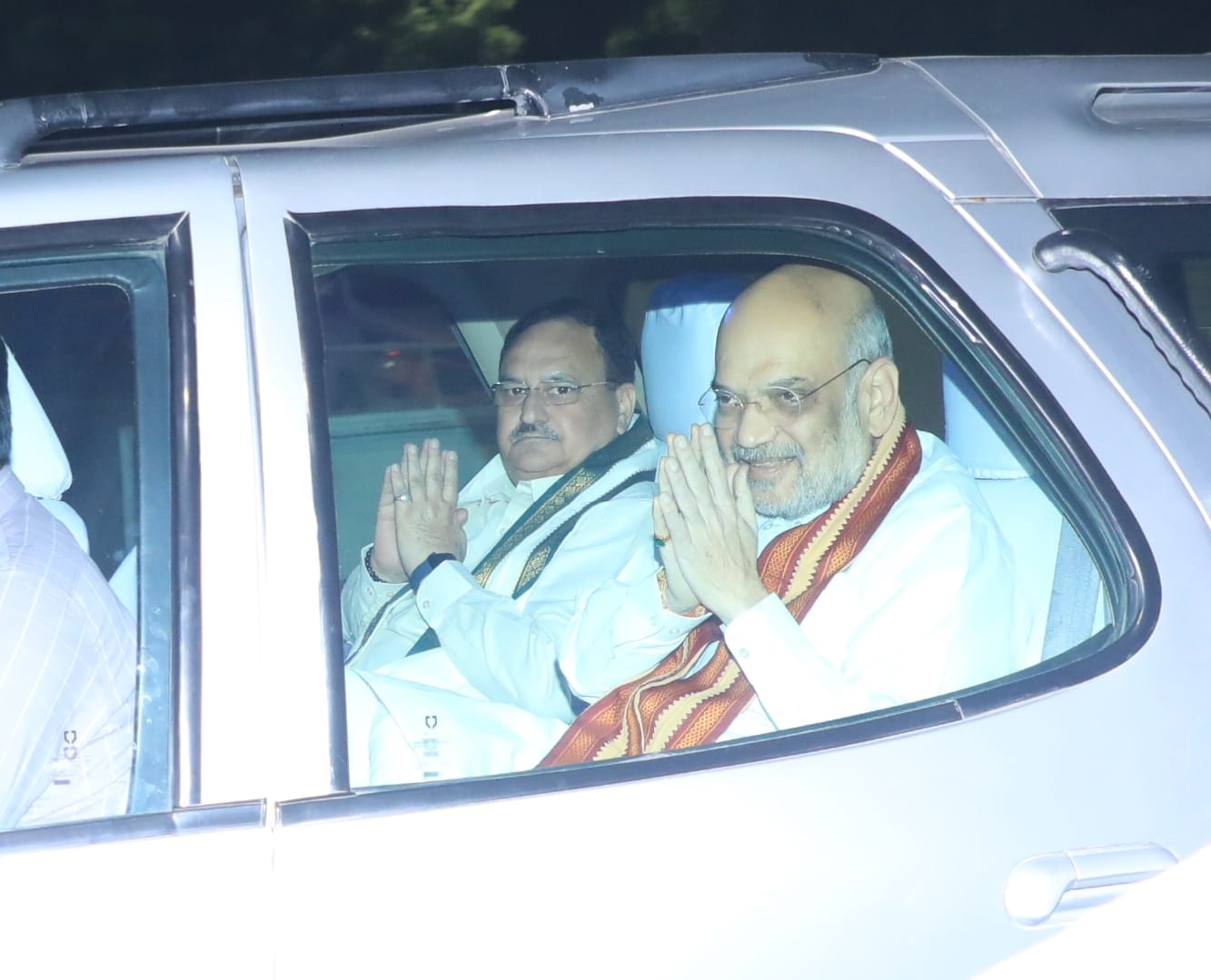


It is once again apparent that the Central leadership of the Bharatiya Janata Party proposes to look at the possibility of promoting fresh faces, to succeed the current state satraps, in the forthcoming Assembly elections. The move is similar to the one that the party had in 2002 at the Goa Conclave, during the tenure of Atal Behari Vajpayee as the Prime Minister, initiated to promote younger and upcoming leaders who included at that time, Narendra Modi, Pramod Mahajan, Venkaiah Naidu, Ananth Kumar, Arun Jaitley and many others. In other words, the proposal is to create a new second line of leadership that may eventually take the command when the appropriate moment comes, and serves the party for many more years. Virtually all the leaders who gained from the policy decision of the leadership, went on to take the BJP to a new level. This is what is expected of the new crop of leaders, who may not be very young but still have many more years to take the party forward. In this context, it is significant to note that several members of Parliament, some ministers amongst them, have been asked to contest the Assembly polls. This is perhaps an indication that Shivraj Singh Chauhan’s long service to the party at the State level may have come to an end, and if the BJP manages to retain the government in MP, NS Tomar, Kailash Vijayvargiya or somebody else could be made the Chief Minister. In Chattisgarh, the current leadership does not seem to have a very high opinion of Raman Singh, who has been the Chief Minister in the past. The same could be true of Rajasthan where Vasundhara Raje, seems to be getting the cold shoulder from the top brass of her party, which is keen to promote Gajendra Singh Shekhawat, Arjun Ram Meghwal and Diya Singh. Politically it is very clear that Narendra Modi and Amit Shah want leaders of the Vajpayee-Advani vintage to make way for the others. This strategy of giving new leaders a chance had flopped both in Himachal Pradesh where in an attempt to continue with the services of Jairam Thakur, the High Command, totally dispensed away with the services of Prem Kumar Dhumal. Similarly, in Karnataka, the marginalization of BS Yeddyurappa led to the alienation of a large number of Lingayat voters, who had been BJP’s most loyal supporters. In Maharashtra, the Central leadership has propped up Devendra Fadnavis but many seniors like Eknath Khadse had to leave the party. The thinking within the BJP is apparently simple. If all the votes are garnered in the name of Prime Minister Modi, then the option of choosing who should head the States, where the BJP forms the government should also be his and his close associates. After all Modi is the undisputed supreme leader and even the RSS believes that the party should prepare for the future and prop up new leadership that can deliver. However, it needs to be understood that sidelining established leaders does not necessarily work in States. When Vajpayee and Advani tried to minimize the importance of Madan Lal Khurana in Delhi, the outcome was for everyone to see. Since 1998, the BJP has failed to come to power in Delhi despite the fact that the Congress has been virtually decimated in the capital. Vasundhara has her following in Rajasthan and if she is ignored, there could be political repercussions. This in the election year, the BJP cannot really afford to do. In fact, barring Chhattisgarh, Rajasthan and Madhya Pradesh, the BJP has opted for a new line of leaders, and all of them emerged on the top in the post Vajpayee-Advani era. The next Parliamentary elections are going to be crucial for both the BJP and its alliance partners as well as those opposed to the NDA. Therefore, it is important that the BJP takes steps which would help it to retain power at the Centre. The move to ask MPs to contest Assembly elections has multiple dimensions. On one hand, those who have served at the national level shall get a chance to return to their respective States and simultaneously, some new fresh faces can be given tickets for Parliament to enable new comers to make their mark. Even in Haryana, where the BJP is in power for the second successive time, some MPs, even though they may have won with big margins, could be replaced by new aspirants. This would like in other places, help in off-setting the anti-incumbency against individual MPs, that could come in the way of the party winning in the elections. At the same time, it would be difficult to imagine that the BJP would go into the Assembly polls without their tried and trusted leaders at the helm of affairs. What is also surprising is that if NS Tomar contests for the Assembly, would his seat be offered to Jyotiraditya Scindia, whose defection from the Congress, helped the BJP to form the government, the last time. These are complex questions which surely the BJP leadership may have figured out in their calculations. For the BJP, it is extremely important to perform well in the Assembly polls in order to augment their Parliamentary polls efforts.